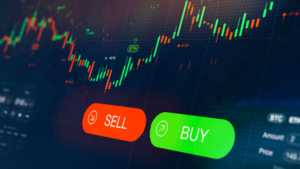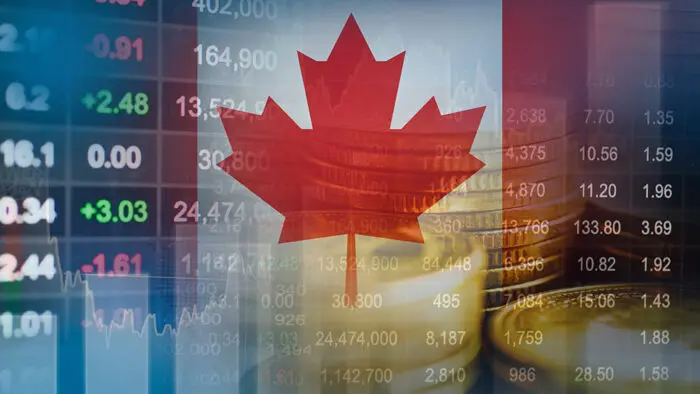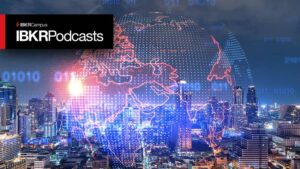Our chat with KraneShares CIO revealed an investor bias towards US technology and growth names at the vast expense of Chinese and Emerging Market equities. But how will investors respond to a series of interest rate cuts in the wake of COVID reopening on the mainland?
Note: Any performance figures mentioned in this podcast are as of the date of recording (June 14, 2023).
Summary – IBKR Podcasts Ep. 87
The following is a summary of a live audio recording and may contain errors in spelling or grammar. Although IBKR has edited for clarity no material changes have been made.
Andrew Wilkinson
Welcome to today’s IBKR podcast. This is Andrew Wilkinson. My guest today is Brendan Ahern, CIO of KraneShares. How are you, Brendan?
Brendan Ahern
Great. Andrew, how are you?
Andrew Wilkinson
I’m doing just fine, thank you. Thanks for taking the time out of your day to come and sit and talk to us about all things China. So, let’s get underway—the equity markets around the world have started to discount at least a plateau in the Fed’s pace of tightening, Brendan and about how much the world’s largest economy might actually slow down. We’ve talked a lot about recession recently—from where you’re sitting, how are investors looking, favorably or otherwise, at both emerging markets in China? Are they somewhat out of favor at this time? What’s your view on it?
Brendan Ahern
In general, I find U.S. and many global investors are significantly overweight U.S. equities following a decade of significant outperformance. US equities now account for nearly two-thirds of the world’s market cap, and that’s driven by— since the global financial crisis low, which is back in March of 2009, you’ve had a spectacular run from US equities. So, since the March 9th ‘09 low, the S&P 500 is up just about 250% and that compares to MSCI emerging markets is up 209%. And MSCI China only up 152% and if you put yourselves in the shoe of an investor, you’re getting your quarterly statement or you’re a trustee of a pension plan or you sit on the board of an endowment or foundation or you’re an independent board member, that’s 56 meetings or financial statements where you’re asking yourself—why do we hold non-U.S. equities that are so out of favor? They’re holding us back. You know, if we just own more U.S. stock. Here’s the little rub—we’d all agree the last decade plus has been driven by growth stocks and if we looked at the sector composition of MSCI emerging markets and MSCI China, lo and behold, 50% of those two indices was two sectors: financials and energy. So, you have these two value sectors which are a disproportionate percentage of the benchmark. And so, these indices were not good transmission engines for what’s been happening economically in emerging markets nor China and, more importantly, is they had very little exposure to growth stocks. So, this growth outperformance is not a U.S phenomenon, it’s a global phenomenon. MSCI emerging markets only had 11% in the tech sector and that tech sector was up over 900% versus the S&P 500/750 and MSCI China was only 2% technology— that went up 1800% versus the S&P 500/750. So, these broad-based benchmarks were very poor transmission engines for a growth market and that’s an element of what we at KraneShares try to provide investors in both emerging markets and China’s exposure to these growth elements.
Andrew Wilkinson
So, I want to turn the conversation back to COVID and the legacy of COVID. COVID hit the sizable Chinese economy particularly hard, and the government went to stringent lengths to prevent the spread. First of all, what’s the status of China’s reopening and, second, is the pace of China’s economic reopening on track at this point?
Brendan Ahern
Two interesting things are happening— COVID because of the lockdowns really weighed on consumer confidence in consumer consumption in China, that you hoard cash, you don’t spend it if you’re potentially being locked in your apartment during a lockdown or quarantined if you test positive. At the same time, China’s economy benefited from the free money many developed governments gave, so you give people free money, they buy Peloton bikes, iPhones, and Xboxes. They buy meme stocks and Bitcoin, maybe. Now you’re seeing a complete flip flop that now as the global economy slows, demand from the world’s factories is slowing. At the same time, with the removal of zero COVID policy, you’re seeing consumer consumption slowly pick up. Consumer confidence isn’t like flicking a light switch. So, you had this surge and Chinese equities reflected that surge, you know, from October to the latter part of January, many Chinese stocks went up almost 100%. And then you had this pullback because it’s happening incrementally that you know Q1 better than Q4, Q2 better than Q1. So, we shouldn’t expect this overnight success story. It will come back online incrementally.
Andrew Wilkinson
How would you frame investor sentiment towards emerging markets in China these days?
Brendan Ahern
I mean, half-jokingly, you couldn’t give away the shares on the street corner. You have this infatuation with U.S. stocks, particularly technology’s current favorite is this AI, which the US equity market is becoming increasingly narrow in terms of the breadth. And I just find from a lot of just client conversations, many of these folks have little to no exposure to non-U.S. equities and they say well the next decade will look like the last decade. And my retort, as always, well what if it’s like the decade before the last decade, which was the lost decade that U.S. equities formed 0% for 10 years and non-U. S equities including emerging markets outperformed. And there’s just a little bit of a cynic or contrarian streak, you know, and for myself that just says— the market does what people are least prepared for. And with U.S. equities at a basically all-time high within global equity market cap. You know, the Warren Buffett country indicator, U.S. equities— it’s more than 150% GDP in U.S. market cap. So, we’ll see, time will tell. Again, I don’t pretend to think I can predict the future, I just think there’s a, you know, potential reversion to the mean over the next several years in terms of non-U.S. outperformance.
Andrew Wilkinson
Let’s turn to geopolitical risks, which appear to be resurfacing, and I’m talking about Taiwan. That’s become the topic at the top of many analysts’ minds. Can you summarize the current thinking about the tension between mainland China and Taiwan? And second of all, what’s your view on the situation?
Brendan Ahern
From our conversations with Henry Kissinger over the years, as well as our general counsel, which was actually President Obama’s ambassador to Singapore, where she spent time with Lee Kuan Yew, the founding father of modern Singapore and the proverbial consigliere to Chinese leaders was that China always plays the long game. They want Taiwan to want to be part of China. At the same time, I think our brains are wired to come up with easy solutions. So, you say Ukraine, Russia, Taiwan, China— it’s a much more complicated issue. I think ultimately China does play the long game and that’s just from, you know, the simple reality that China’s economy, unlike Russia, is so geared to the West. The Chinese economy would collapse without exports to the United States, to Europe, to Japan, to broader Asia. Russia had nothing to lose, proverbially; China has everything to lose. And we’ve done some interesting work where most people say China, you know, Taiwan is 90 miles from China, but in fact, part of Taiwan sits just three miles from mainland China, Kinmen Quemoy. If you use Google Maps, you’d be shocked if China wanted to take that element of Taiwan, they could do it in a rowboat. And people live there. It shows that the Western media narrative— why would anyone live there? They thought, you know, some imminent invasion was going to take place. So, I think we’re a little bit of skeptics in that regard. If your worried about an invasion, then you should be selling U.S. multinationals with high revenue exposure to China. So, think about Apple, Tesla, Nike, Starbucks, Boeing, ExxonMobil. I mean, you’d basically be eliminating the vast majority of U.S. stocks.
Andrew Wilkinson
Where does Brendan Ahern see opportunities for the second half of 2023?
Brendan Ahern
Well, not surprising— being China focused and emerging market focused, we do believe that China’s economic rebound will continue in the second half of this year, spurred on by interest rate cuts. China have been cutting the deposit interest rate, the loan prime rate, the bank deposit requirement ratio reserve will be cut again so China is easing while the rest of the world is hiking interest rates as well as more targeted stimulus toward the Chinese consumer as well as with an emphasis besides just on broader domestic consumption, but particularly electric vehicles. We’re seeing some very specific measures there, so we’re optimistic for a rosier or a better performance for Chinese stocks in the second-half of this year than the first half. We also believe the geopolitical narrative can improve. There’s a lot of talk about Secretary of State Blinken visiting China. A member from the U.S. Treasury Department just visited Hong Kong— the first senior official in Hong Kong in five years. So, we think a potential thawing in the relationship could actually allow President Xi and President Biden to meet at the APAC summit in San Francisco later on this year, so a lot to watch, Andrew.
Andrew Wilkinson
My guest in this edition has been KraneShares CIO, Brendan Ahern. Brendan, thank you very much for joining me today.
Brendan Ahern
My pleasure. Thank you, Andrew.
Andrew Wilkinson
And if you enjoyed this episode, please do remember to leave us a review wherever you download your podcasts from, and as ever, check out additional episodes at ibkrpodcasts.com.
Join The Conversation
If you have a general question, it may already be covered in our FAQs. If you have an account-specific question or concern, please reach out to Client Services.
Leave a Reply
Disclosure: Interactive Brokers
The analysis in this material is provided for information only and is not and should not be construed as an offer to sell or the solicitation of an offer to buy any security. To the extent that this material discusses general market activity, industry or sector trends or other broad-based economic or political conditions, it should not be construed as research or investment advice. To the extent that it includes references to specific securities, commodities, currencies, or other instruments, those references do not constitute a recommendation by IBKR to buy, sell or hold such investments. This material does not and is not intended to take into account the particular financial conditions, investment objectives or requirements of individual customers. Before acting on this material, you should consider whether it is suitable for your particular circumstances and, as necessary, seek professional advice.
The views and opinions expressed herein are those of the author and do not necessarily reflect the views of Interactive Brokers, its affiliates, or its employees.
Disclosure: Bitcoin Futures
TRADING IN BITCOIN FUTURES IS ESPECIALLY RISKY AND IS ONLY FOR CLIENTS WITH A HIGH RISK TOLERANCE AND THE FINANCIAL ABILITY TO SUSTAIN LOSSES. More information about the risk of trading Bitcoin products can be found on the IBKR website. If you're new to bitcoin, or futures in general, see Introduction to Bitcoin Futures.

















Very precise , good.